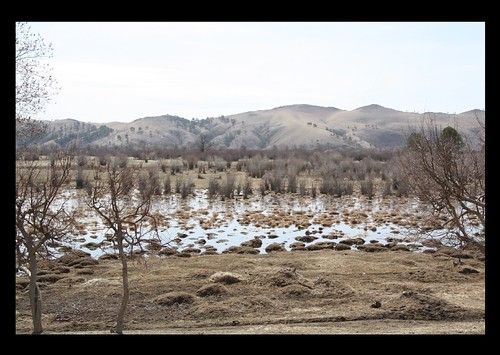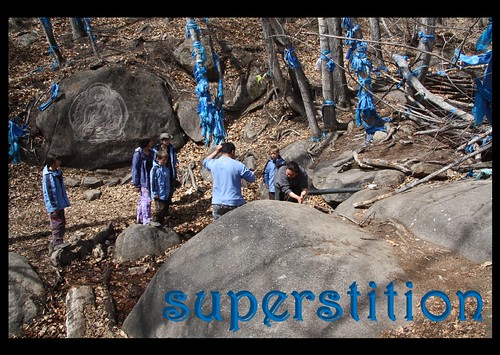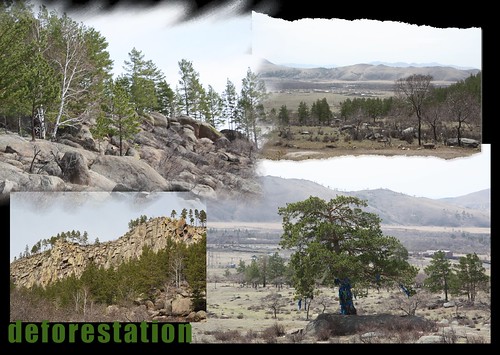*spring*
by Rach
Orkhon, Mongolia
Spring is supposed to be a time of new life. Here it seems that rather than filling the people with expectancy and anticipation, everyone is heaving a sigh of relief that they survived another winter. And because this spring has come so suddenly and early, they know a severe winter will follow, so they are already dreading what is to come, when the rivers have not yet totally unfrozen from last winter!

To us, spring heralds an awakening. Here it is a melting, a thawing out. The snow shroud is lifted, taking with it romantic beauty, and leaving in its place dusty brown hills generously littered with broken bottles, plastic packaging, dead dogs (teeth still barred, rib cage protruding from shaggy coat flapping in the breeze), cigarette stubs, rusty metal and general household waste. The only thing we see emerging from hibernation are some still-very-sleepy sluggish struggling-to-move fat flies.
In our experience, spring screams GREEN. In Mongolia spring is brown. Bleak barren dreary desolate dusty brown. Trees have no leaves, grass has not sprouted, dust storms prevail. Just the other day we were able to experience a small one. One minute we were sitting outside enjoying the sun, the next there was a whisper of a wind. Within five minutes sand was blowing around us and our hosts were scurrying about hurriedly gathering up possessions, rescuing them indoors. Having never seen anything like it, we braved the sand in noses, ears, eyes and mouths and stood at the back fence watching the sand-clouds swirl and eddy across the plain like a current in a stream. Soon enough there was nothing to see. Ulaanbaatar was completely obliterated from view, the power plant chimneys with their constant smoke belches were absorbed into the dust clouds, and even the tussocky plain at the base of the hill disappeared.
That was spring in the city.
Out here at the ranch, things are a little different.
There are babies…calves and kids and more on the way.
There is a shimmering of green beneath the tussock brown.
There are buds on trees, waiting to burst open.
There are gardens waiting to be turned over and flood irrigated.
There are piles of manure being scraped up and redistributed around the farm.
There is activity such as we did not witness in the city.
There is more activity on this block than the surrounding farms too, for that matter.
You see, Martin is a man of vision and sheer hard work. He has been working in this inhospitable environment long enough, and successfully so, for his opinions to mean something. He is frustrated by the inactivity around him. By people who just do enough to get by and wonder why there’s no firewood (because they’ve chopped it all down – actually “only” 80% of it in the last two decades – and not replanted a single stick). He’s frustrated at the preponderence of superstitious belief that flies in the face of scientific reality. He’s frustrated at the belief in Chingghis Khan, who according to the majority of Mongols, is on his way to save the country…and then this backward country will take over the world. Hard to believe! This is not the poorest country we’ve been to, not in terms of natural resources or international aid given. But it is the most rundown. And I start wondering if our host’s apparent arrogance is actually the reality, if his words are a sad-but-true analysis.


By the end of our week here the fields will be just starting to show green. We can almost imagine what it might look like in summer. Could there be a hint of hope? With more men like Martin and our first host, Bergzsuren, there just might be.
Tags: children, food, health, housing, justice, learning, parenting, postcard: Mongolia, weather




Leave a Reply